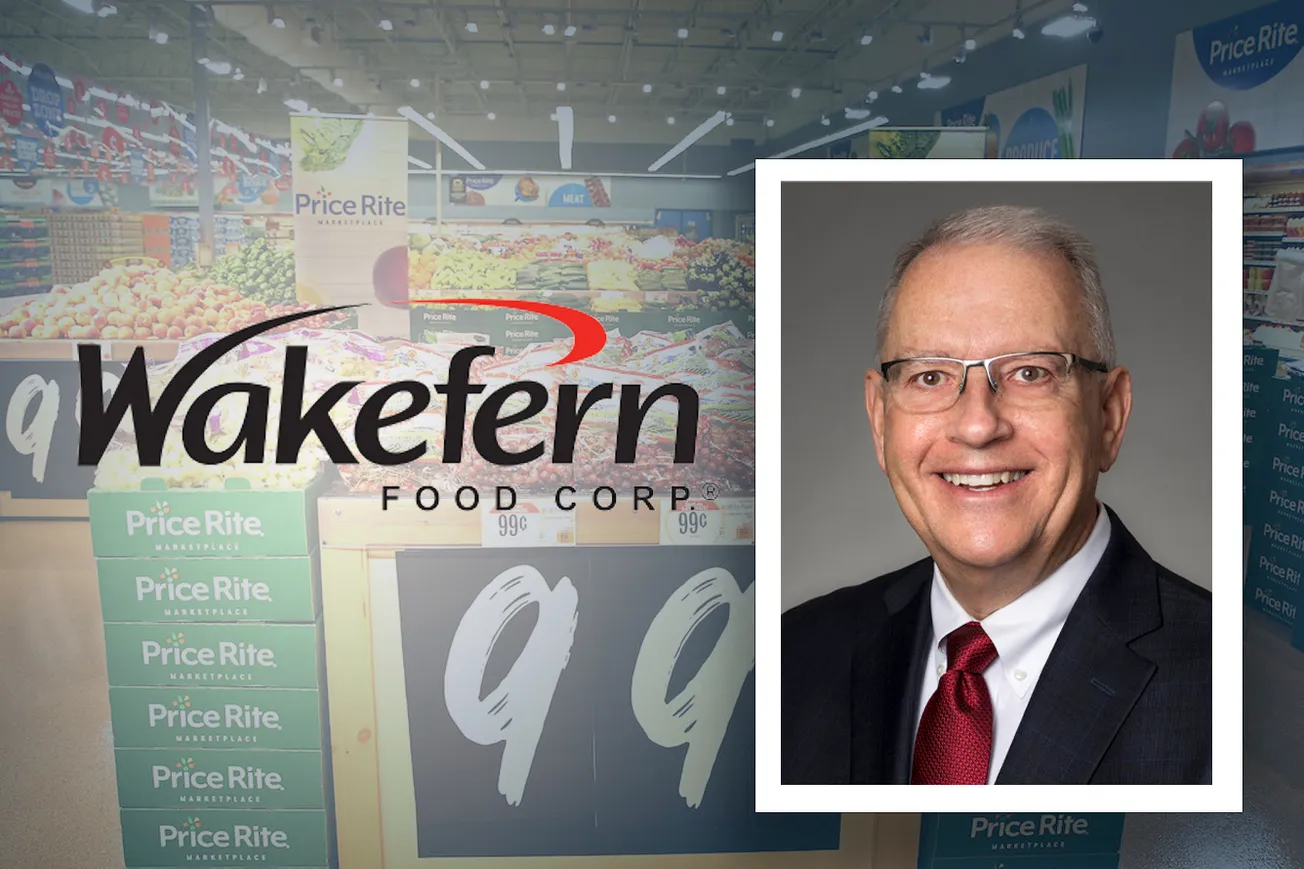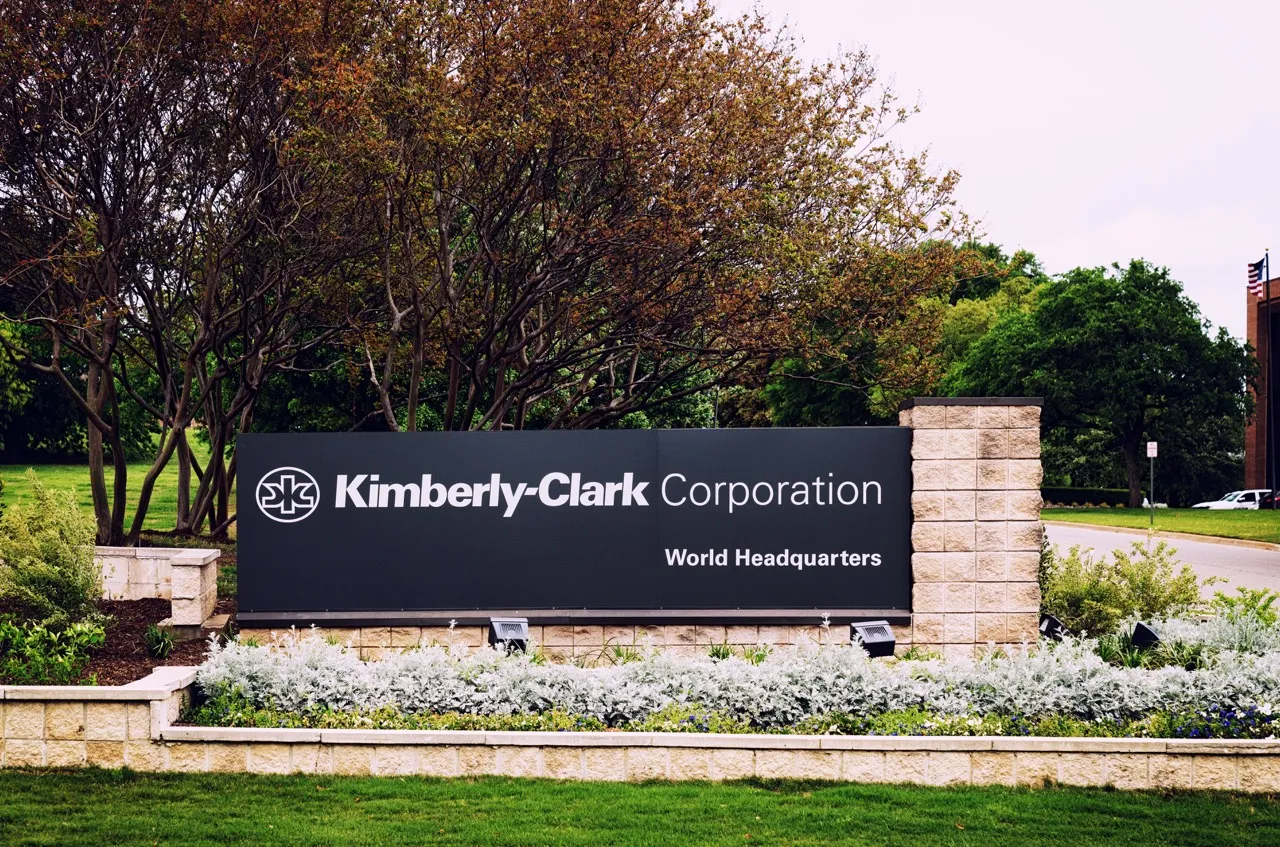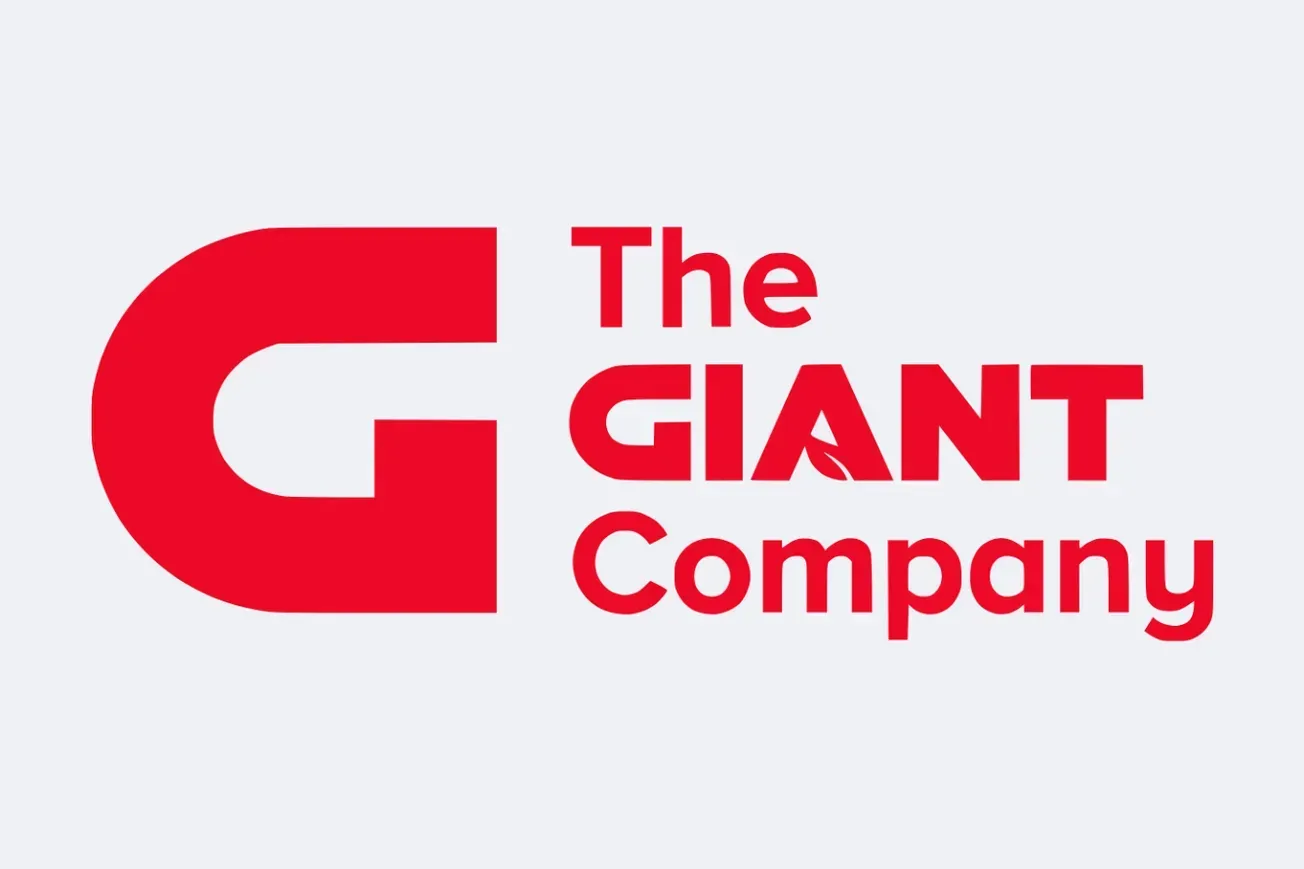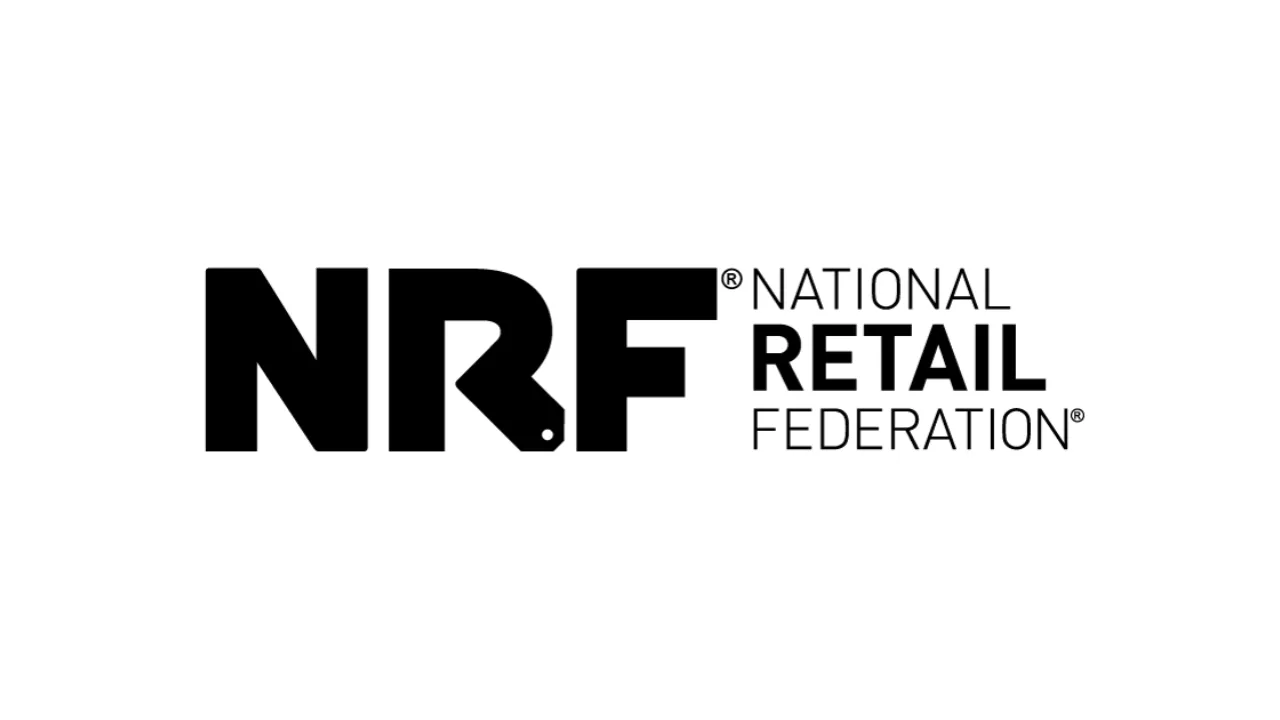KEASBEY, N.J. — Mike Stigers, the first outside hire to preside over Wakefern Food Corp., was recruited in 2023 to succeed the retiring Joe Sheridan, who had spent his entire 47-year career at the nation’s largest retailer-owned cooperative.
In large measure, success in the job depends on a president’s skill at leading a collection of local, family-owned Davids as they compete in a supermarket industry ruled by Goliaths.
Wakefern was founded in 1946 by operators of produce stands, butcher shops and superettes seeking a collective response to the post-war rise of supermarkets offering shoppers wider selections at lower prices. Nearly 80 years later, Stigers said, the company still represents an archetype “where mom and dad, brothers, sisters, and cousins are all part of the business.”
“Those generations of family members working together makes us truly unique,” he said. “Our retailer members live and work in the communities where their stores operate. They are in their stores each day and they know their customers and what they want and need.”
Stigers and his leadership team toil at keeping costs low so members can provide value for their customers.
“Everything we do is designed to bring economies of scale to our independent operators and wholesale customers,” he said.
Wakefern comprises nearly 50 member companies that independently own and operate more than 360 supermarkets under the ShopRite, Price Rite Marketplace, The Fresh Grocer, Dearborn Market, Di Bruno Bros., Gourmet Garage and Fairway Market banners across the Northeast.
Members benefit from Wakefern’s purchasing power, as well as support services ranging from private label brand development to construction management and from pharmacy support to public relations.
“I sometimes joke that when you’ve visited one ShopRite — you’ve visited one ShopRite. That’s because different members offer their own family recipes and specialties that reflect the communities where their stores operate,” Stigers said.
“Some might say that the challenge with our cooperative structure is that you can’t always execute uniformly at retail in the way a top-down chain might. But we believe that is an important point of our competitive difference,” he said.
“Wakefern’s committee structure — where the retailer and wholesaler come together — is another singular and important part of our cooperative model because it allows members and Wakefern teams to collaborate, debate and make key decisions.”
Members also benefit from the knowledge and experience Stigers gained over a half century in the retail and wholesale sides of the grocery business, starting with a part-time job as a clerk at a Safeway store in California while he was in high school.
“Everything I’ve done over my five-decade career has prepared me for my role at Wakefern,” he said. “I’ve held a variety of leadership positions in both retail and wholesale and have worked for both publicly traded companies and family-owned businesses like Wakefern. The Wakefern opportunity allows me to bring together all that experience to one of the most respected wholesaler-retailers in the country. I’m working with a phenomenal team of professionals at Wakefern and member entrepreneurs — it has been humbling and gratifying.”
Before arriving at Wakefern, Stigers was chief executive officer of Cub Foods, a subsidiary of UNFI, the largest publicly traded wholesaler and food distributor in North America. He also spent eight years at SuperValu, starting in 2011 as president of Shaw’s/Star Market in New England. He went on to lead SuperValu’s northern wholesale region and serve as executive vice president of SuperValu’s wholesale and supply chain services.
Stigers has also been active in industry trade associations; he is a past president of Western Association of Food Chains, and a past chair of the National Grocers Association, which represents thousands of independent, community grocery stores in the United States.
“I’ve always loved this business, because the grocery industry feeds America, and that’s not an overstatement,” Stigers said. “Everyone needs food, water and shelter, and we provide two out of three. Grocery stores also are an essential part of every community, especially in moments of crisis like the pandemic or natural disasters. It’s important to remember that we’re not only selling groceries but also providing that sense of place, hope and community in our stores.”
It’s no secret that the retail food business is undergoing a transformation, he said.
“Today’s consumer is very different from when I started in the industry more than five decades ago. Today’s consumer is very savvy. They know that food plays a critical role in their health and well-being, they are more diverse in their tastes and preferences, and they care deeply about how their food is sourced and how it impacts their environment. Wakefern and its members listen closely to our customers, and how we respond to these changes affects every aspect of our business, from how we source and procure to how we market and merchandise.”
Wakefern continues to introduce technologies and services that weave the in-store and online shopping experiences into a seamless whole. “Some stores are implementing smart shopping carts, known as Caper Carts, which have become very popular. The cart, powered by Instacart, utilizes computer vision and sensors to detect items the shopper puts in the cart and automatically tallies them up, making it a self-checkout on wheels,” Stigers said. “And stores are incorporating electronic shelf labels that automatically update prices, freeing retail teams to focus more on customers.”
Stigers is also pursuing growth in nonfood categories, notably pharmacy and health and wellness. Wakefern recently hired Aaron Sapp as vice president of pharmacy and wellness and charged him with setting a new direction for the division.
Sapp will help members with pharmacies navigate the regulatory landscape and develop marketing and educational programs around products that support customers’ wellness goals.
These include GLP-1 drugs and other weight loss solutions that are important to the lives of many customers, he said.
With the Centers for Disease Control and Prevention (CDC)classifying 100 million American adults as obese, GLP-1 embodies a significant opportunity for supermarkets, one that extends beyond the pharmacy department. For example, evidence suggests shoppers who take GLP-1s need nutrient dense, protein rich foods.
Wakefern’s private label brands, including Wholesome Pantry, Bowl & Basket and Paperbird, also drive sales growth and provide a framework for special vendor summits that have led to innovations that expanded and diversified the portfolio.
Stigers credits these and other brand enhancements as the foundation of Wakefern’s appeal to potential new members.
“Five of Wakefern’s newest alternate banners were brought to us by members who recognized the quality and value those brands offered customers, communities and the cooperative,” he said.
“The most recent addition to our cooperative — the iconic Philadelphia-based Di Bruno Bros. — was led by Wakefern member Brown’s Super Stores and the Brown family, another well-known grocery family based in Philadelphia. The deal secured the future for the Di Bruno Bros. retail stores in the city while presenting new opportunities for Wakefern with the addition of the brand to the cooperative’s portfolio of wholesale products,” Stigers said.
“The Browns had the foresight to see the potential for Di Bruno Bros. and helped set in motion an exciting new phase not only for the Philadelphia specialty market but also for Wakefern.
“Another Wakefern Philadelphia member, Pat Burns, founded The Fresh Grocer supermarket and brought that banner to Wakefern when he joined the cooperative in 2013. With a smaller footprint than ShopRite, the grocery store focuses on fresh, prepared foods in more urban markets. Other Wakefern members are expanding the banner now by opening Fresh Grocer stores in new places. The first Fresh Grocer in New York opened in August, on Long Island, and we look forward to expanding the banner further.
“Village Super Market and the Sumas family brought two well-known Manhattan stores into the cooperative — Gourmet Garage and Fairway Market — and they’ve been doing great things with those store brands over the last few years, bringing value and an expanded assortment of products to New York City consumers.
“Saker ShopRites purchased Dearborn Market and garden center in Holmdel, N.J., in 2015 after the Saker family was drawn to Dearborn’s traditions, specialty recipes and similar history as a family-owned company.
“Price Rite Marketplace, a Wakefern-developed banner, represents a limited-assortment format that offers shoppers discount pricing along with an assortment of fresh produce and meats.
“While Wakefern’s seven supermarket banners provide different shopping experiences and offerings, community and value remain at the heart of every store’s value proposition,” Stigers said. “It’s that pioneering spirit of our member families — that call to action that entrepreneurs feel in their heart — that continues to drive the cooperative and allows us to grow and succeed.”








